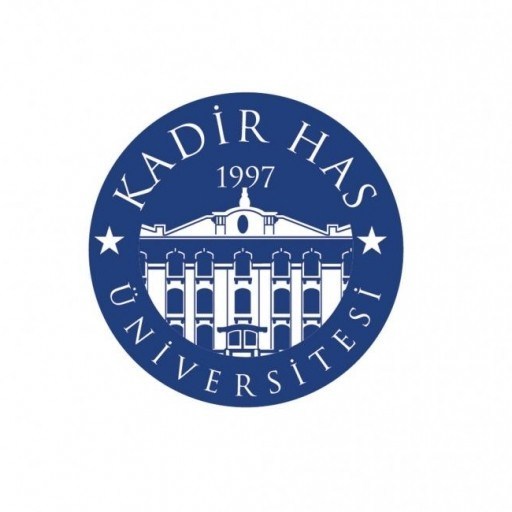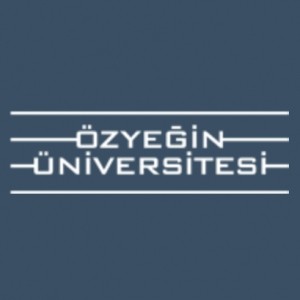Photos of university / #khasedutr
The Bachelor of Economics program at Kadir Has University is designed to provide students with a comprehensive understanding of economic principles, theories, and applications. This undergraduate program aims to equip students with the analytical skills and quantitative techniques necessary to analyze economic data, understand market dynamics, and develop effective economic policies. Throughout their studies, students are introduced to various fields within economics, including microeconomics, macroeconomics, econometrics, and international economics, enabling them to grasp complex economic phenomena both locally and globally.
The curriculum emphasizes critical thinking, problem-solving, and research skills, allowing students to approach economic issues from multiple perspectives. In addition to core economic courses, students have opportunities to explore related disciplines such as political science, management, and finance, fostering an interdisciplinary understanding that is crucial in today’s interconnected world. Practical skills are reinforced through case studies, simulations, and internships, providing real-world experience and preparing graduates for careers in academia, public policy, banking, finance, consulting, and international organizations.
Kadir Has University’s state-of-the-art facilities and experienced faculty members contribute to an engaging learning environment. The program also promotes the development of communication and teamwork skills essential for professional success. Students are encouraged to participate in various seminars, workshops, and academic conferences to stay updated with the latest developments in the field of economics. Graduates of the Bachelor of Economics program emerge as well-equipped professionals capable of conducting in-depth economic analysis, offering solutions to economic challenges, and contributing effectively to the economic development of their communities and beyond. The program’s flexible structure allows students to tailor their academic experience according to their interests with elective courses, research projects, and opportunities for international exchange. Overall, the Bachelor of Economics at Kadir Has University aims to cultivate knowledgeable, skillful, and innovative economists prepared for a dynamic and competitive global job market.
The Bachelor of Economics program at Kadir Has University provides students with a comprehensive understanding of the fundamental principles and methodologies used to analyze economic phenomena at both micro and macro levels. The curriculum is designed to equip students with strong analytical, quantitative, and critical thinking skills necessary for addressing complex economic issues in various sectors. Throughout the program, students gain in-depth knowledge of microeconomic theory, including consumer and producer behavior, market structures, and the theory of the firm, as well as macroeconomic concepts such as national income determination, monetary and fiscal policy, inflation, unemployment, and international trade.
In addition to core theoretical courses, students are introduced to quantitative methods and econometrics, which are essential tools for economic analysis and policy-making. These skills enable students to collect, analyze, and interpret data, making their insights relevant and applicable to real-world problems. The program emphasizes the development of practical skills through case studies, group projects, and internships, allowing students to apply theoretical knowledge in practical environments and prepare for careers in banking, finance, government, international organizations, and private sector enterprises.
The curriculum also includes courses on economic development, environmental economics, and behavioral economics, fostering a well-rounded perspective on contemporary economic challenges and opportunities. Students may have opportunities to participate in seminars, workshops, and research projects that deepen their understanding and contribute to their academic and professional growth.
Kadir Has University’s vibrant academic environment promotes critical thinking, ethical considerations, and innovative approaches to solving economic issues. The program is designed not only to prepare students for immediate employment upon graduation but also to provide a solid foundation for further studies in economics or related fields. Graduates of the program will possess the analytical and technical skills necessary to contribute meaningfully to economic analysis, policy development, and decision-making processes across diverse industries and sectors.
The Bachelor's Degree in Economics at Kadir Has University requires students to complete a total of 240 ECTS credits over the course of four years of study. The program is designed to provide students with a comprehensive understanding of microeconomics, macroeconomics, econometrics, and various specialized fields within economics. Students are expected to take a combination of compulsory courses, including Principles of Economics, Intermediate Microeconomics, Intermediate Macroeconomics, Mathematical Methods for Economics, and Introduction to Econometrics. Additionally, they must choose from a range of elective courses that allow for specialization in areas such as International Economics, Development Economics, Public Economics, and Financial Economics.
In the first year, students focus on foundational courses, including introductory economics courses and basic mathematics and statistics to build quantitative skills essential for economic analysis. The second year introduces intermediate courses that delve deeper into economic theories and models, often complemented by practical applications through case studies and project work. The third year emphasizes advanced topics and methodological skills, particularly in econometrics and research methodologies, preparing students for independent research and analysis.
The program also requires students to undertake a semester of practical training or an internship, which aims to connect theoretical knowledge with real-world economic environments. Students must pass all courses with a minimum grade point average (GPA) specified by university regulations to progress to subsequent years and ultimately graduate. In their final year, students typically complete a bachelor’s thesis or research project under supervision, demonstrating their ability to apply economic theories to real phenomena and to conduct independent research.
English is the language of instruction for most courses, and students are expected to meet language proficiency requirements to ensure they can comprehend advanced economic texts and engage in academic discourse effectively. The program encourages participation in seminars, workshops, and conferences related to economic issues, fostering critical thinking and keeping students updated with current economic debates and policies. Assessment methods include written examinations, coursework, presentations, and project reports, all designed to evaluate students’ understanding, analytical skills, and ability to communicate economic concepts clearly and concisely. Overall, the Economics program at Kadir Has University aims to develop well-rounded graduates equipped for careers in academia, government, international organizations, financial institutions, and the private sector.
Financing for the Economics program at Kadir Has University is primarily provided through student tuition fees, which are determined annually and may vary depending on the curriculum structure and student status. The university offers a range of payment options, including full payment, installment plans, and scholarships for eligible students, aimed at making education accessible and affordable. Scholarships are awarded based on academic achievement, financial need, or special talents, and are designed to support talented students in their educational pursuits. In addition to scholarships, the university collaborates with various financial institutions to offer students loan opportunities, facilitating access to funds necessary for tuition and living expenses. Kadir Has University may also participate in national or international financial aid programs, which can include government grants, student loan schemes, or private sponsorships, expanding financial support options for students enrolled in the Economics programme.
Furthermore, the university often encourages students to engage in part-time employment opportunities either within the university, such as research assistantships or teaching aide positions, or externally through internships and collaborations with local businesses. These opportunities not only provide financial relief but also enrich students’ practical experience and professional connections in the field of economics. The university’s career services and student affairs departments provide guidance on managing finances, applying for external funding, and developing skills necessary for securing financial aid and employment during studies. The inclusion of such financial support mechanisms ensures that students can focus on their academic and personal development without undue financial pressure. Overall, Kadir Has University is committed to supporting its students financially through a combination of tuition management, scholarships, loans, and employment opportunities, aiming to make the pursuit of an Economics degree accessible to a diverse student body.
The Economics undergraduate program at Kadir Has University offers students a comprehensive education in the core principles and analytical techniques of economics. The program aims to develop students' understanding of microeconomics, macroeconomics, econometrics, and other related fields, preparing them for diverse careers in business, finance, public policy, and further academic pursuits. The curriculum emphasizes both theoretical foundations and practical applications, providing students with vital skills such as critical thinking, data analysis, and policy evaluation.
Throughout the program, students are exposed to a variety of specialised courses including international economics, development economics, financial markets, and economic modeling. The faculty comprises experienced academics and industry experts who bring real-world insights into the classroom. The university also promotes active learning through case studies, projects, internships, and seminars, enabling students to connect theoretical knowledge with practical experience.
Kadir Has University supports students' global perspectives by encouraging participation in international exchange programmes and partnerships with universities abroad. The program also aims to foster research skills and encourages students to undertake independent research projects, often culminating in graduation theses. The goal is to prepare graduates who are equipped with analytical rigor, economic literacy, and the ability to adapt to changing economic environments.
Additionally, the Department of Economics offers support services such as career counseling, workshops, and networking events to enhance employability after graduation. Graduates find opportunities in sectors including banking, government agencies, consulting firms, international organizations, and academia. The program's interdisciplinary approach ensures that students gain a well-rounded understanding of economic issues within broader social, political, and ethical contexts. This combination of solid theoretical grounding and practical experience makes the Economics program at Kadir Has University a valuable foundation for a successful professional career in economics and related fields.








